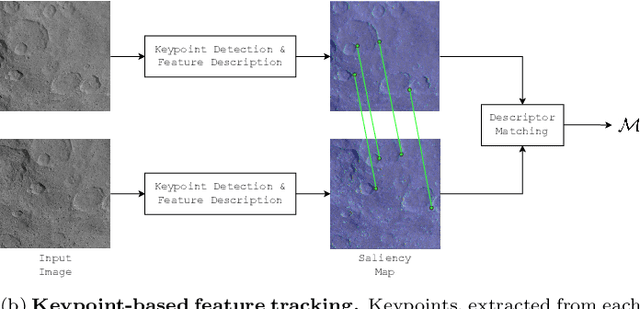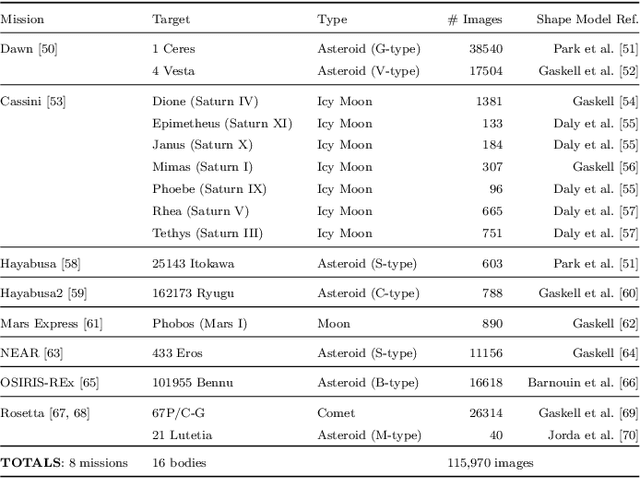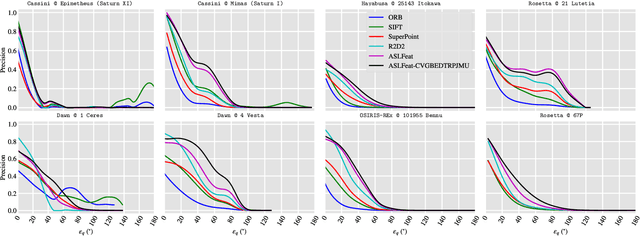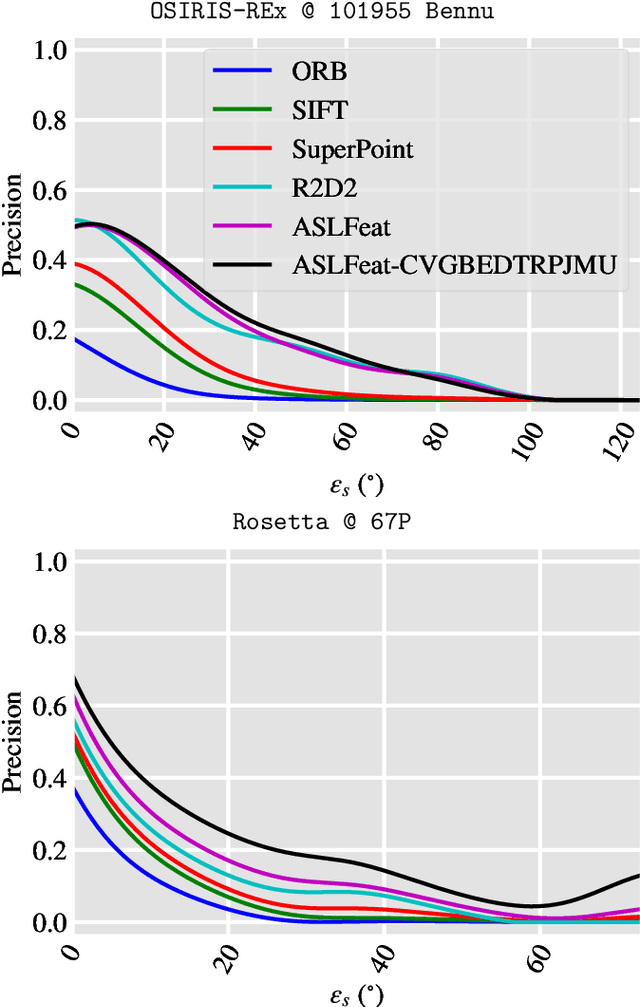AstroVision: Towards Autonomous Feature Detection and Description for Missions to Small Bodies Using Deep Learning
Paper and Code
Aug 03, 2022



Missions to small celestial bodies rely heavily on optical feature tracking for characterization of and relative navigation around the target body. While deep learning has led to great advancements in feature detection and description, training and validating data-driven models for space applications is challenging due to the limited availability of large-scale, annotated datasets. This paper introduces AstroVision, a large-scale dataset comprised of 115,970 densely annotated, real images of 16 different small bodies captured during past and ongoing missions. We leverage AstroVision to develop a set of standardized benchmarks and conduct an exhaustive evaluation of both handcrafted and data-driven feature detection and description methods. Next, we employ AstroVision for end-to-end training of a state-of-the-art, deep feature detection and description network and demonstrate improved performance on multiple benchmarks. The full benchmarking pipeline and the dataset will be made publicly available to facilitate the advancement of computer vision algorithms for space applications.
 Add to Chrome
Add to Chrome Add to Firefox
Add to Firefox Add to Edge
Add to Edge